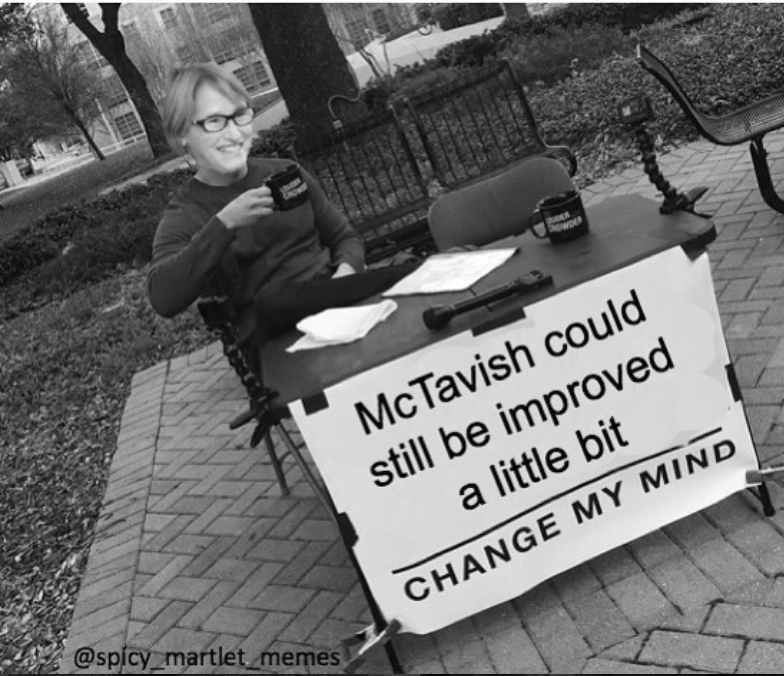The “Change My Mind” meme emerged this past February, when a conservative commentator named Steven Crowder set up a table outside the campus of Texas Christian University with a sign reading “Male privilege is a myth, change my mind.” Crowder has a YouTube page and a podcast where he frequently engages others in discussions on controversial topics ranging from a woman’s right to an abortion to gender politics. Despite the gravity of the discourse Crowder provokes, the perceived outlandishness of his views by a fairly liberal young population on campus led to an online parody of his segment. These include statements like: “ratatouille would beat stuart little’s ass in a fight: change my mind,” or “pop tarts are ravioli: change my mind.”
With the emergence of several McGill meme Instagram accounts in the last few years, McGill students have been adapting popular meme templates to create student-relevant content. Take, for example, the Change My Mind meme posted by the Instagram account @spicy_martlet_memes, where Crowder’s head has been replaced with McGill Principal Suzanne Fortier’s, and his sign photo-shopped to read, “McTavish could still be improved a little bit: change my mind.” Satirically reinterpreting Crowder’s Change My Mind table into something relevant to the McGill student is not only humourous, but taps into the communication gap on campus between the administration and the student body.
Student-run meme pages allow them a space to co-ruminate about this gap: It often feels like McGill is not listening to them, not meeting their needs, and falling short in providing adequate essential services, like mental health support.
This general frustration among McGill students also extends to physical hindrances to their experience that include the seemingly never-ending McTavish construction. McTavish Street has undergone construction numerous times in the last four years. Roadblocks have posed many difficulties for individuals with injuries or mobility impairments and local businesses, making it an especially salient topic for students. One only needs to recall Winter 2017’s treacherous narrow metal staircase in front of the Brown building. Amid general frustrations with the construction in the city of Montreal and annoyance at the administration—who once advised students to just “keep calm and carry on” despite the dangerous obstacles—memes are the cathartic release students need.
For example, the Deputy Provost of Student Life and Learning Ollivier Dyens’ notorious suggestion that students practice good “hygiene de vie” to cope with mental health challenges quickly went viral. Dyens’ statement upset many students. In turn, it fuelled an abundance of meme posts across various Instagram pages, all featuring sarcastic commentary on the statement, allowing students to air their grievances.
While many memes posted in student-run Instagram accounts are purely for comedic purposes, they also can serve a more politically-engaged purpose. During the recent SSMU president elections, former candidate Corinne Bulger stated in an interview with the The McGill Tribune that “meme culture can be used as a really powerful tool to hold our admin accountable, especially in such a public forum.”
A direct example of Bulger’s remarks can be seen in one McGill student Instagram account, @burnsidebasementsoupcafe69, which published a flurry of memes following Dyens’ “hygiene de vie” gaffe. Included among these memes was a single image with a direct message: “This is Ollivier Dyens…Don’t let him get re-elected.”
Ultimately, memes offer more than just a humourous outlet to scroll through between classes: They speak to students’ concerns and frustrations with the McGill administration, and because of this are an important tool to understand the opinions and interests of the student body. Perhaps the administration should pay more attention to these outlets, and address the concerns they raise. In the meantime, it’s much more fun to collectively laugh at them.









